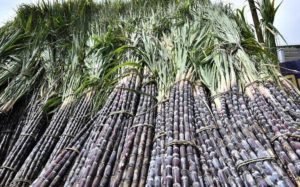Adopting F-T-P Approach for Sustainable Sugar Industry
The biofuel sector is currently at important point where sustainable development, energy security, and climate action converge. The Feedstock-Technology-Product (F-T-P) approach provides a structured framework that integrates biofuels into various industries, particularly sugar. This method aligns with India’s National Policy on Biofuels 2018 and aims to make the sugar industry a driver of sustainable growth.
Feedstock Diversity and Its Importance
India’s agricultural diversity positions it as a potential leader in biofuel production. The F-T-P approach categorises feedstocks into three generations for effective scalability and sustainability. 1. First-Generation Feedstocks (1G) – These include molasses, sugarcane syrup, and surplus grains. They are readily available but must be managed to prevent food security issues. 2. Second-Generation Feedstocks (2G) – Comprising agricultural residues like bagasse, rice straw, and wheat straw, these feedstocks offer a sustainable alternative. The Ministry of New and Renewable Energy (MNRE) promotes research into 2G ethanol technologies, leveraging the by-products of sugar mills. 3. Third-Generation Feedstocks (3G) – Algal biofuels, still experimental, require minimal land and promise high yields. India’s National Mission on Algal Biofuels marks the country’s commitment to advancing this technology.
Technological Innovations in Biofuels
The biofuel industry’s success hinges on technological advancements that enhance efficiency and sustainability. 1. Alcohol-to-Jet (ATJ) Technology – This technology is very important for the aviation sector, which seeks decarbonisation solutions. India’s first commercial Sustainable Aviation Fuel (SAF) plant marks advancement. 2. Bio-Methanation – Promoted under MNRE’s SATAT initiative, this technology converts organic waste into biogas, supporting a circular bioeconomy. 3. Lactic Acid Technologies – Developing bioplastics from polylactic acid (PLA) aligns with economic and environmental goals, reducing reliance on traditional plastics.
Expanding Product Horizons
The F-T-P framework redefines biorefineries as not just ethanol production sites but as centres for diverse, high-value outputs. 1. Ethanol Production – The Ethanol Blending Programme (EBP) has increased ethanol demand, but scaling 2G ethanol production is essential for long-term goals. 2. Sustainable Aviation Fuel (SAF) – SAF presents a lucrative opportunity as the aviation industry embraces biofuels for climate compliance. 3. Renewable Chemicals and Materials (RCM) – Producing bio-based chemicals can enhance profitability while reducing fossil fuel dependency. 4. Bioplastics and Bio-Bitumen – The demand for sustainable materials aligns with these product categories, catering to eco-friendly infrastructure and packaging needs.
Integrated Biorefineries – A Vision for the Future
Integrated biorefineries are central to the F-T-P approach. They combine feedstock diversity, advanced technologies, and varied outputs to achieve multiple objectives: – Optimising resource utilisation. – Minimising waste through circular production models. – Serving as sustainable industrial hubs that promote rural development.
Trivia Facts
- 1G feedstocks can compete with food supply, necessitating careful management.
- ATJ technology is crucial for decarbonising the aviation sector.
- 2G feedstocks use agricultural waste, enhancing sustainability.
- Algal biofuels require less land than traditional crops.
- Bioplastics are made from PLA, reducing plastic dependency.
The Future of Biofuels in India
The F-T-P approach is a practical pathway for achieving India’s biofuel ambitions. By focusing on diverse feedstocks, innovative technologies, and a broad product range, the sugar industry can play a vital role in India’s green economy. The government’s supportive policies provide a solid foundation for industry players to drive collaboration, invest in research, and adopt sustainable practices.
Month: Current Affairs - January, 2025
Category: Agriculture Current Affairs






